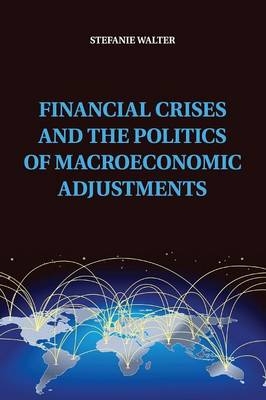
Financial Crises and the Politics of Macroeconomic Adjustments
Cambridge University Press (Verlag)
978-1-107-52990-8 (ISBN)
When are policy makers willing to make costly adjustments to their macroeconomic policies to mitigate balance-of-payments problems? Which types of adjustment strategies do they choose? Under what circumstances do they delay reform, and when are such delays likely to result in financial crises? To answer these questions, this book examines how macroeconomic policy adjustments affect individual voters in financially open economies and argues that the anticipation of these distributional effects influences policy makers' decisions about the timing and the type of reform. Empirically, the book combines analyses of cross-national survey data of voters' and firms' policy evaluations with comparative case studies of national policy responses to the Asian financial crisis of 1997/8 and the recent global financial crisis in Eastern Europe. The book shows that variation in policy makers' willingness to implement reform can be traced back to differences in the vulnerability profiles of their countries' electorates.
Stefanie Walter is Full Professor of International Relations and Political Economy in the Department of Political Science at the University of Zurich. She previously held positions as Fritz-Thyssen Fellow at Harvard University and as Junior Professor for International and Comparative Political Economy at the University of Heidelberg. Her research concentrates on the fields of international and comparative political economy, with a particular focus on how distributional conflicts, policy preferences, and institutions affect economic policy outcomes. Her work has been published in Economics and Politics, the European Journal of Political Research, International Organization, and International Studies. She received her PhD in Political Science from ETH Zurich.
1. Introduction; 2. The distribution of vulnerabilities: purchasing power, balance sheets, and exchange-rate policy preferences; 3. Voters' direct vulnerability to adjustment. European voters in the 2008/9 global economic and financial crisis; 4. Indirect vulnerability to adjustment. The determinants of employers' monetary and exchange rate policy preferences; 5. Interests, elections, and policy makers' incentives to adjust; 6. The politics of adjustment in the Asian financial crisis, 1997/8; 7. Adjustment in Eastern Europe during the first phase of the global financial and economic crisis, 2008–10; 8. Conclusions.
| Reihe/Serie | Political Economy of Institutions and Decisions |
|---|---|
| Zusatzinfo | 9 Tables, unspecified; 20 Line drawings, unspecified |
| Verlagsort | Cambridge |
| Sprache | englisch |
| Maße | 153 x 230 mm |
| Gewicht | 410 g |
| Themenwelt | Sozialwissenschaften ► Politik / Verwaltung ► Vergleichende Politikwissenschaften |
| Wirtschaft ► Volkswirtschaftslehre ► Finanzwissenschaft | |
| Wirtschaft ► Volkswirtschaftslehre ► Makroökonomie | |
| Wirtschaft ► Volkswirtschaftslehre ► Wirtschaftspolitik | |
| ISBN-10 | 1-107-52990-5 / 1107529905 |
| ISBN-13 | 978-1-107-52990-8 / 9781107529908 |
| Zustand | Neuware |
| Haben Sie eine Frage zum Produkt? |
aus dem Bereich


